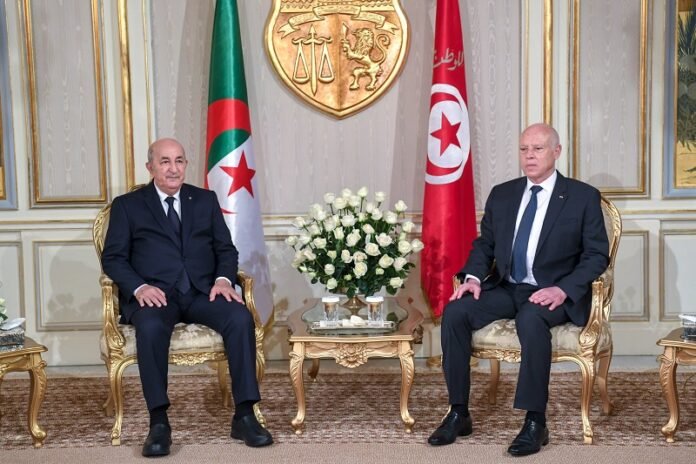Tunisia appears to be sliding deeper into Algeria’s orbit, with President Kaïs Saïed increasingly adopting Algerian positions on key regional issues, most notably the Moroccan Sahara.
Following his reception of the leader of the separatist movement based in Tindouf and participation in controversial trilateral meetings, Saïed has now opened Tunisian universities to separatist propaganda, undermining Morocco’s sovereignty over its southern provinces.
In this context, the city of Hammamet recently hosted a symposium titled “Resistance and Resilience: Multidimensional Approaches,” organized by an Algerian research center in partnership with the University of Monastir in Tunisia.
Participants included researchers from Algeria, Tunisia, Libya, Mauritania, and the Tindouf camps, invited to deliver lectures promoting separatist rhetoric against Morocco. This shift represents a dangerous turn in Tunisia’s foreign policy, which has traditionally maintained neutrality in this conflict.
Berrak Chadi Abdessalam, an international expert in crisis management, remarked, “The participation of a Polisario delegation in a scientific event in Tunisia aligns with President Kaïs Saïed’s new foreign policy, which has turned Tunisia into a ‘client state’ or an Algerian province catering to the ambitions of Algeria’s military regime.”
The expert also criticized the involvement of Tunisian academic institutions in these unbalanced regional policies, calling it a “dangerous deviation” that underscores Tunisia’s submission to Algeria’s destabilizing agendas.
Abdessalam emphasized that Tunisia is deviating from its historical stance of neutrality, upheld under Bourguiba and Ben Ali, which avoided confrontation with Morocco’s interests.
This shift undermines regional integration efforts within the Maghreb, stalling shared aspirations for prosperity and development.
In light of these developments, Tunisia must clarify its position on Morocco’s territorial integrity and return to its tradition of balanced diplomacy.
The expert concluded that excessive alignment with Algeria harms Tunisian-Moroccan relations and diminishes Tunisia’s ability to safeguard its strategic interests both regionally and internationally.


